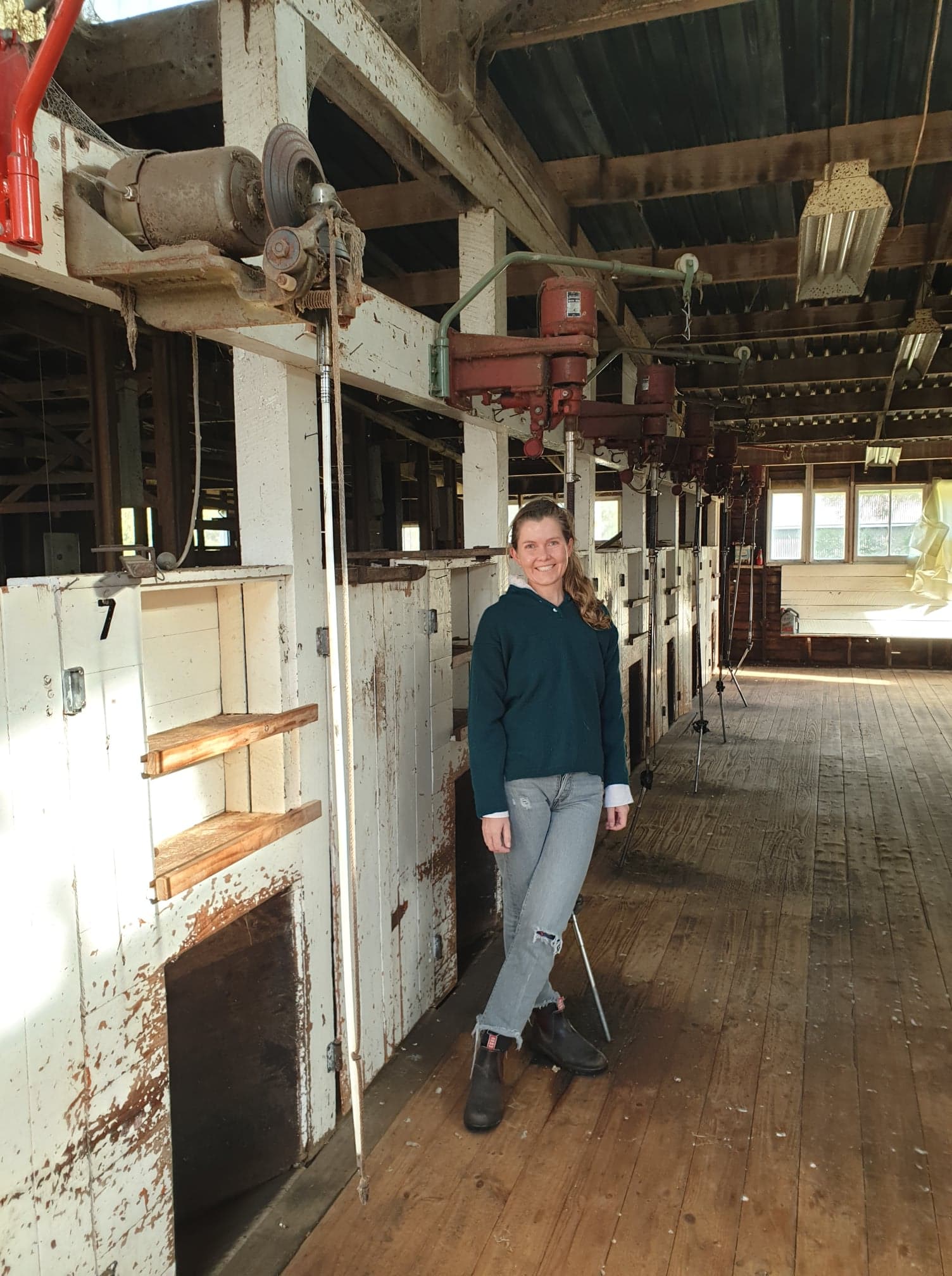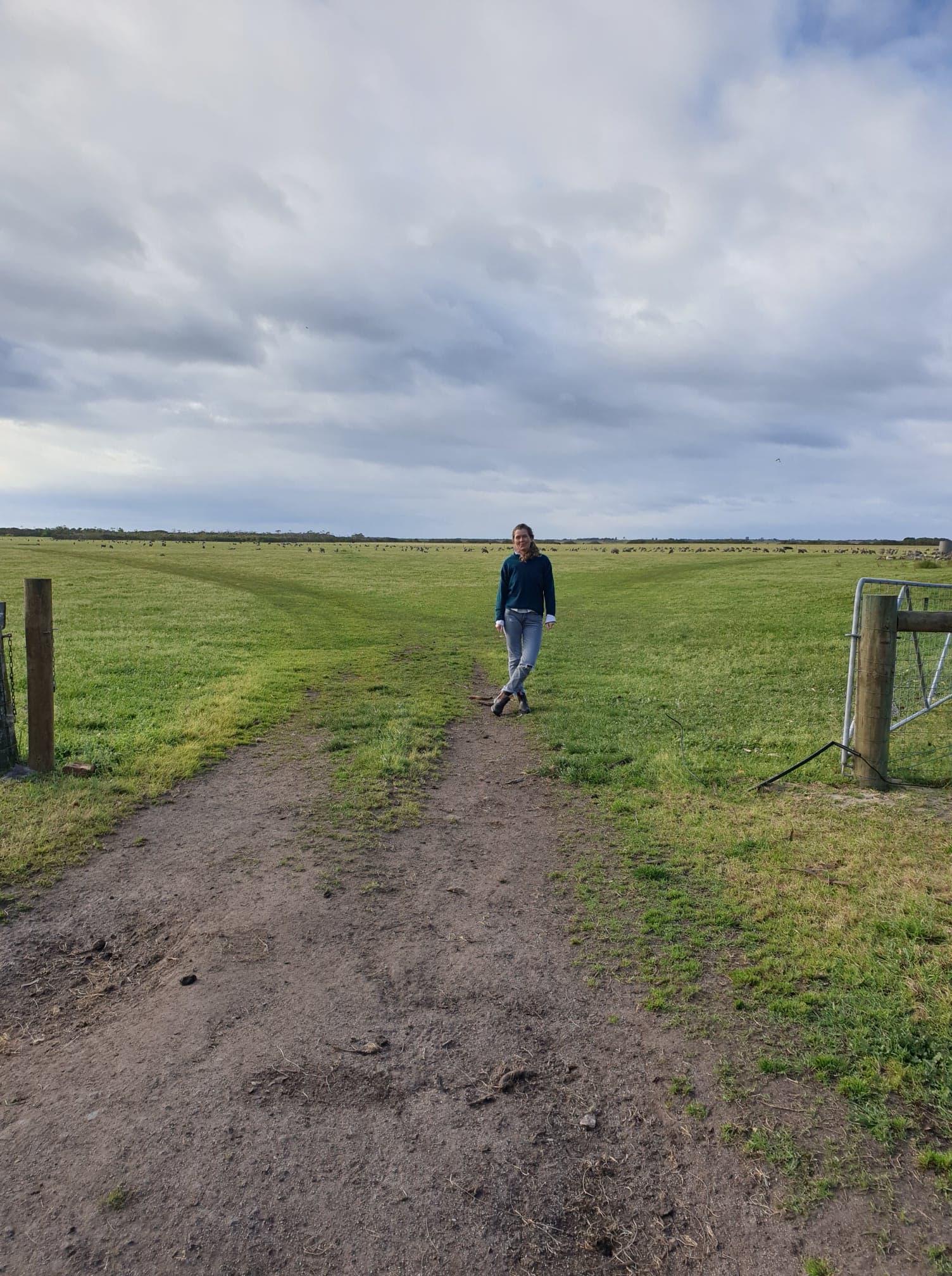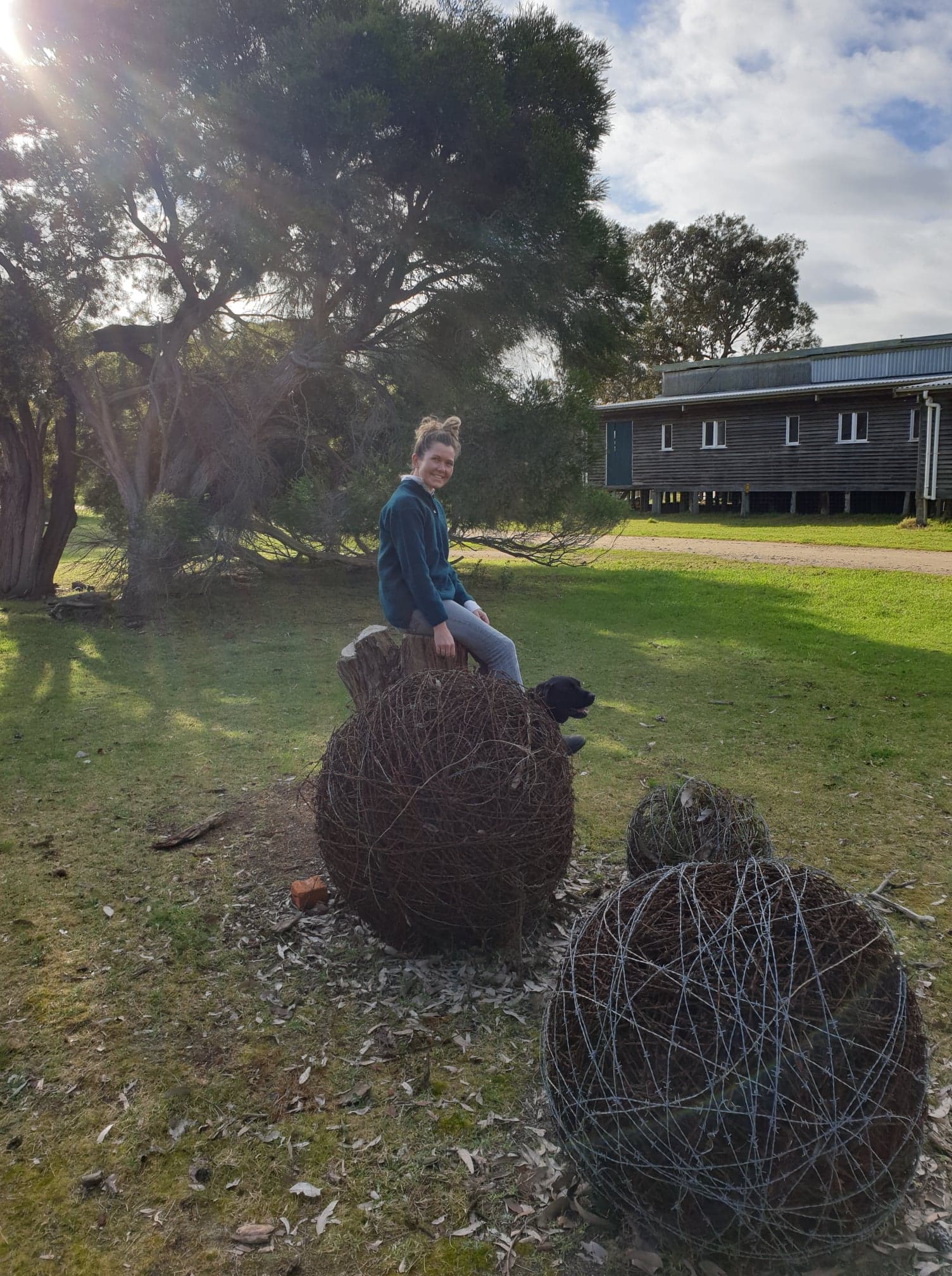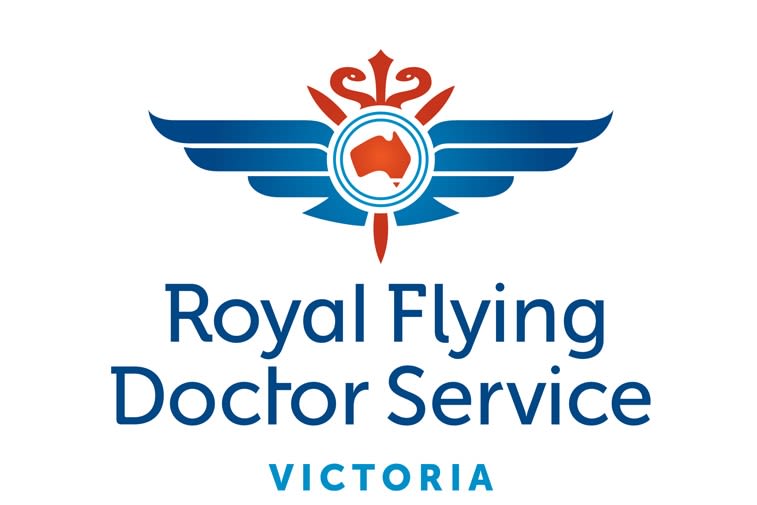Meet Alice Irving: Mental Health Clinician, Wellbeing
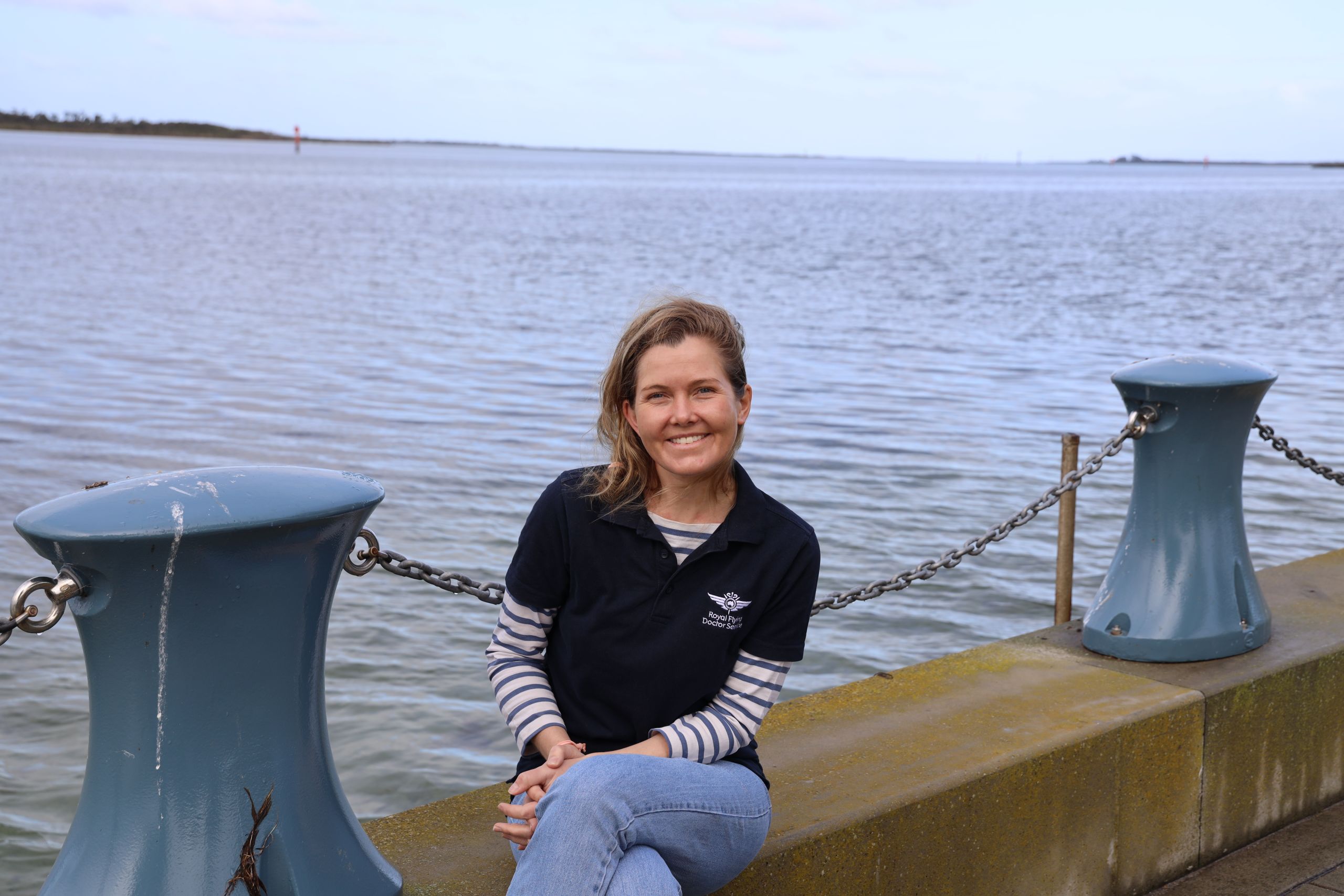
After growing up on a sheep, cattle and cropping farm in South East Gippsland, RFDS Mental Health Clinician Alice Irving travelled Australia pursuing a career in mental health – but the call of home never really left.
“Our place has been in my dad's family for ages - my sister and I are the fourth generation to grow up here,” she says. “So I've got a strong connection with where I live. It’s a really strong part of my identity.”
Working as part of the Flying Doctor team means Alice can live on the family farm and travel across large parts of Central and South Gippsland for work. This has allowed her to pursue her passion for agriculture – as well as mental health – and given her a greater understanding of the challenges her clients are facing.
“Gippsland has had a really tough number of years; well before COVID-19. There was obviously the bushfires last summer which had a huge impact, but that is on top of years of serious drought.”
Alice says while everyone’s story is unique, there are some common concerns which are being felt across Gippsland.
“COVID-19 adds another layer of adversity for people. Clients are telling me, and I know from my own experience on our farm, that COVID-19 has created such uncertainty around commodity markets. For example, the wool market has been really affected, so there are a lot of new anxieties as well as the usual worries that go on in the background.
“The idea of the unknown is, understandably, very difficult for people. It's definitely testing the human spirit.”
During what is undoubtedly a challenging time, Alice says one of the positives is that people are feeling more comfortable letting others know when they might be struggling.
“Any of the events above can be enough to jolt people to think, ‘My mental health is just as important as my physical health’ – and it's all connected anyway.
“Whether it’s reaching out and calling us directly or going through their local GPs, people recognise when they are feeling isolated that they can ask for help.”
Alice believes the ability to connect via phone or video to mental health services from home, or while out in the paddocks or stockyards, has been a game changer.
“For a lot of people it’s made accessing mental health support much more accessible, and perhaps a little bit less daunting.”
“In many ways, we as a community need to give ourselves more credit in regard to the old ‘silent and self-reliant’ stereotype of rural communities, because a lot of the old stigma about seeking help is changing. I think that's really hopeful.”
